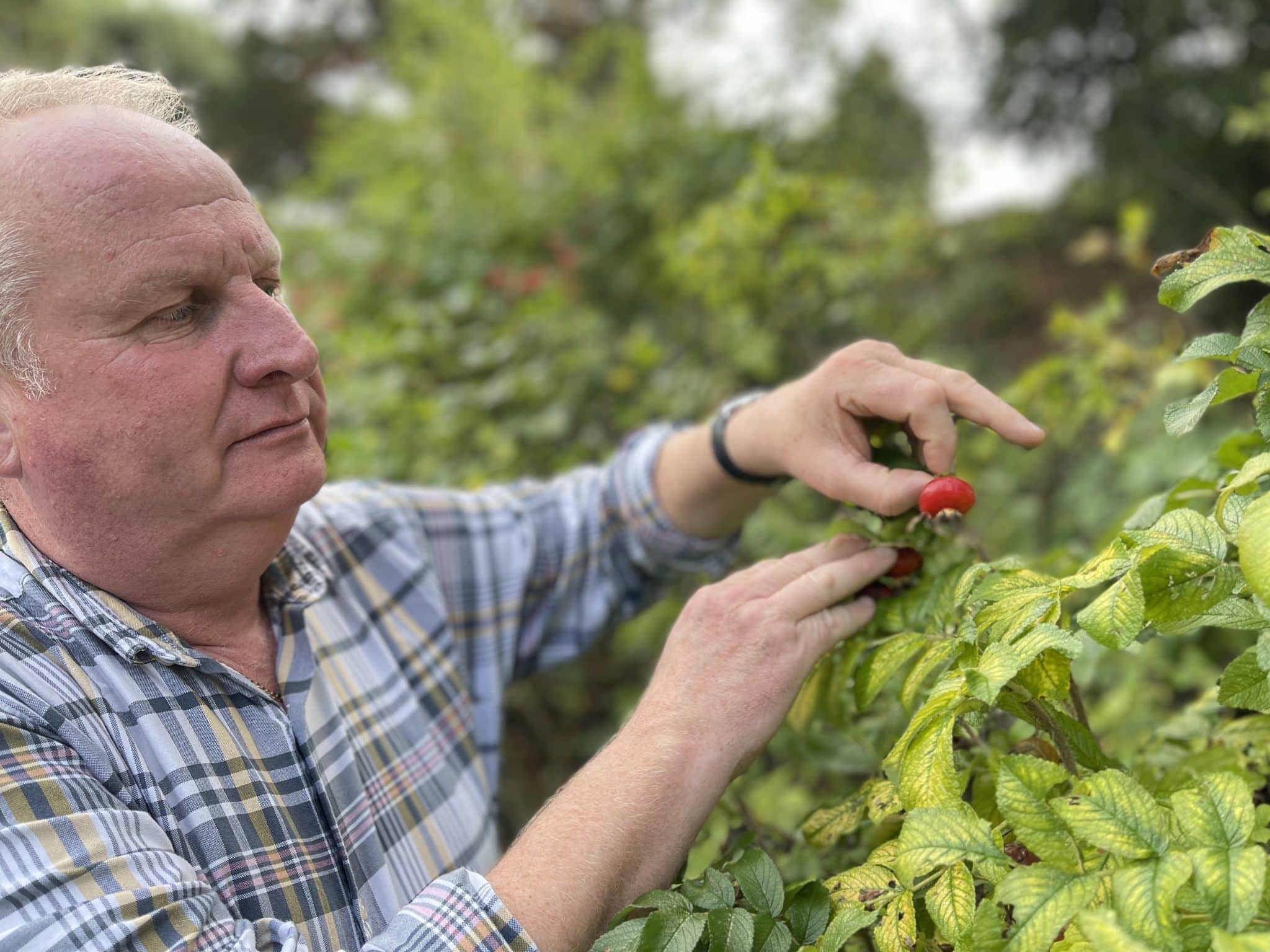Did you know you can enrich your diet courtesy of mother nature? Vikki Rimmer spoke to Hever Castle’s head gardener Neil Miller to discover the power of rose hips, which can be 40 times more potent than Vitamin C and also made into teas and jellies?
Only a handful of gardeners know that the fruits of their rose labours – the rose hip – contain up to 40 times the vitamin C content of an orange. Tasting rather like a tart apple or plum, the rose hip is an often over-looked autumnal joy. But did you know that rose hips also make a fantastic tea to drink, jelly to eat, or skin-rejuvenating cream? And by this time of the year we can all do with a little bit of rejuvenating!
If you have been growing organic roses and have left them untreated, you can head out into the garden now and harvest your rose hips for all manner of treats and tinctures.
I visited Hever Castle & Gardens recently and head gardener Neil Miller took me into the shrub rose garden inspired by American poet Emily Dickinson and her New England rose garden. The Damask roses and shrub roses in this beautiful border are laden down with what can only be described as ‘fruit’. In fact some of the rose hips are so big, they resemble tomatoes!
All roses produce hips if their blooms are left uncut. The best and most flavoursome varieties are the shrub roses like Rosa rugosa and the Damask roses. Again, ensure that you are only collecting hips from plants that have NOT been treated with chemicals.
The ideal rose hip will be firm to the touch, reddy or dark orange and without blemish. Avoid the mushy ones or any that have dehydrated on the plant.
Rose hips contain seeds and tiny hairs that are irritants to your throat and stomach – in fact they are the main constituent of itching powder.So you must be careful and after picking, while wearing gloves, open up the rose hips by slicing them in half and remove the seeds and hairs with a butter knife.
You can air dry your rose hips. After slicing and removing the hairs and seeds, lay them out on a tray or muslin to dry. Ensure that the conditions are warm to avoid the growth of mould. After a couple of weeks you will have freshly dried rose hips that you can use for tea.
If you are in a hurry for your rose hips you can oven dry them. Following the instructions above to remove seeds and hairs, lay them out in a wide baking tray and bake them on the lowest setting for a couple of hours until they have dried completely.
If you have a food dehydrator then you can easily and slowly dry your (deseeded and dehaired) rose hips without fear of mould from air drying. The process takes about 24 hours and then you have a fantastic crop that you can use on their own or combine with citrus or lemongrass for a fantastic tea.
This tea can be really good for boosting the immune system – you can even add local honey your tea to boost your immunity further.
Add three teaspoons of dried rose hips to two cups of water and bring to a simmer on the stove for 15 minutes. Strain. Then serve with honey.
It’s important that you do not touch the irritant hairs in the rose hips and never eat the seeds or hairy pulp.








